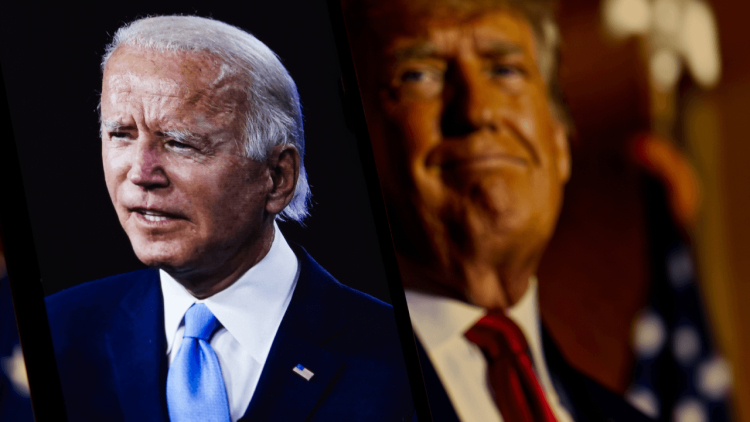Trump Inherits Biden’s Economic Time Bomb: Debt Crisis, Inflation, and Global Tensions
Donald Trump faces a challenging presidency as he takes on Biden's economic legacy: debt crisis, inflationary pressures, and global tensions.

Trump Inherits Biden’s Economic Time Bomb: Debt Crisis, Inflation, and Global Tensions
As Donald Trump steps into office as the 47th President of the United States, he faces an imposing array of economic challenges inherited from Joe Biden's tenure. From a looming debt crisis to persistent inflation and strained international relations, the new administration must grapple with the profound fallout of Biden-era policies.
A Looming Debt Crisis
On her final day in office, former Treasury Secretary Janet Yellen issued a stark warning: the United States is on the brink of hitting its statutory debt ceiling. The projected timeline—between January 14 and January 23, 2025—places immediate fiscal pressure on Trump’s administration.
- Debt-to-GDP Ratio: Forecasted to reach 107% by 2029, signaling unsustainable borrowing levels.
- Interest Payments: Expected to surpass $1.2 trillion annually by 2025, limiting fiscal flexibility.
The rising national debt constrains Trump’s ability to invest in critical areas such as infrastructure, defense, and social programs, forcing difficult choices early in his presidency.
Inflation: A Lingering Threat
Despite Biden’s assertions of a sound economy, inflation remains a persistent concern. While projections suggest it may stabilize at the Federal Reserve’s 2% target by late 2025, the path to achieving this is fraught with challenges:
- Wage Stagnation: Tight labor markets under Biden failed to deliver sustained wage growth, exacerbating cost-of-living pressures.
- Economic Growth: Projected GDP growth of 1.6%-2.0% in 2025 reflects a slowdown compared to previous years, complicating recovery efforts.
Trump’s administration must navigate these inflationary pressures while addressing systemic issues like productivity stagnation and labor market imbalances.
Global Tensions and Economic Stability
The international stage adds another layer of complexity to Trump’s presidency. Rising tensions with China and Russia threaten global trade and investment stability, with potential ripple effects on the domestic economy. Key challenges include:
- Trade Disruptions: Ongoing disputes with China could impact supply chains and commodity prices.
- Geopolitical Risks: The potential for cyberattacks, military conflicts, or natural disasters remains a constant threat to economic stability.
Biden’s tenure saw several U.S. regions grappling with natural disasters, leaving Trump to manage recovery efforts in areas still bearing scars from past crises.
The Path Forward
Trump faces the formidable task of rebuilding confidence in an economy weighed down by mounting debt, inflation, and geopolitical uncertainty. His administration must implement innovative, long-term solutions to address systemic vulnerabilities while fostering economic stability.
Key Priorities for Trump’s Administration:
- Debt Management: Developing a comprehensive strategy to curb borrowing and reduce interest payment burdens.
- Inflation Control: Balancing monetary and fiscal policies to achieve price stability without stifling growth.
- International Cooperation: Mitigating tensions with global powers to stabilize trade and investment flows.
The Verdict:
Trump’s presidency begins under the shadow of profound economic challenges, but with decisive leadership and strategic vision, his administration has the opportunity to steer the nation toward recovery and renewed prosperity.
What's Your Reaction?















